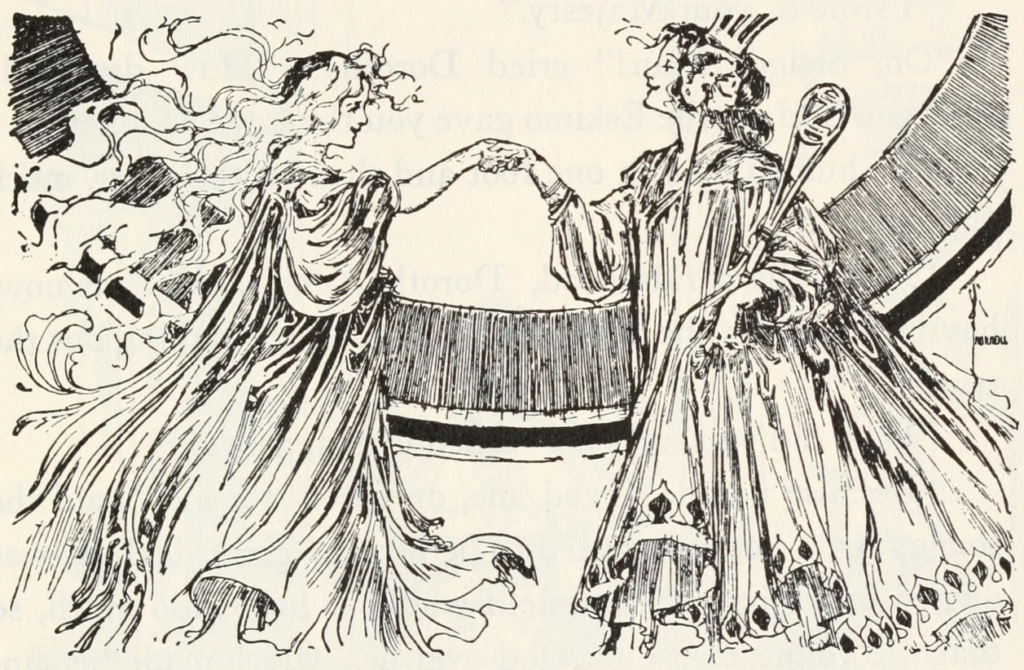Published on 20 July 2023
1. The Riches of Content: Oz as Pastoral, Feminist Socialist Utopia
Now for the upsetting conclusion to my series of Oz posts.

In the original 1900 novel The Wonderful Wizard of Oz, the Land of Oz is fecund and full of friendly people but still a dangerous, socially unstable place. After Ozma ascends to rule the Emerald City of Oz in the second novel, she “civilizes” Oz. L. Frank Baum frames the civilized Oz not as a land of peril and adventure but as a land of wonder and delight. (“Civilizes” might seem like a questionable term for me to use, so put a pin in that.) Ozma’s “civilized” Oz is a counterpoint to the “big, cold, outside world” (Road to Oz 196). This outside world refers to the mundane labor and economic deprivation of the cruel, bleak United States and also the various analogous scary and unfriendly people and monsters who live outside Oz, including Evoldo, the Mangaboos, the Scoodlers, the Phanfasms, the Boolooroo of Sky Island, the Raks, Cor and Gos, and other tyrants and evil spirits. Chief among these is the Nome King, the only major recurring villain in the series.
A number of commentators have interpreted Ozma’s Oz as a utopia, including Sally Roesch Wagner in “The Wonderful Mother of Oz” and Suzanne Rahn in “Beneath the Surface of Ozma of Oz,” both of which I will return to below. Jack Zipes also understands Baum’s Oz as a socialist, matriarchal utopia in “Inverting and Subverting the World With Hope” in Fairy Tales and the Art of Subversion. All three of these writers take Oz as a rejection or condemnation of American capitalism, though bizarrely Wagner and Zipes both interpret the Oz of the original novel, where travel is deadly and there are multiple slave-driving dictators, as already utopian. I will start by exploring what values distinguish Oz as good and correspondingly define the nature of evil in the Oz novels, concentrating on the first six books but drawing from Baum’s later work as well.
Content warning: To spoil the big twist, this essay will quote and cite some very racist material. I will also discuss, with nothing graphic or detailed, genocide and other heavy topics that might be upsetting to some readers. I do not present these subjects to be shocking but hope to ultimately teach something or other.